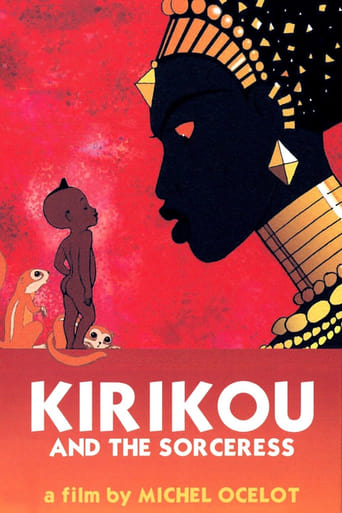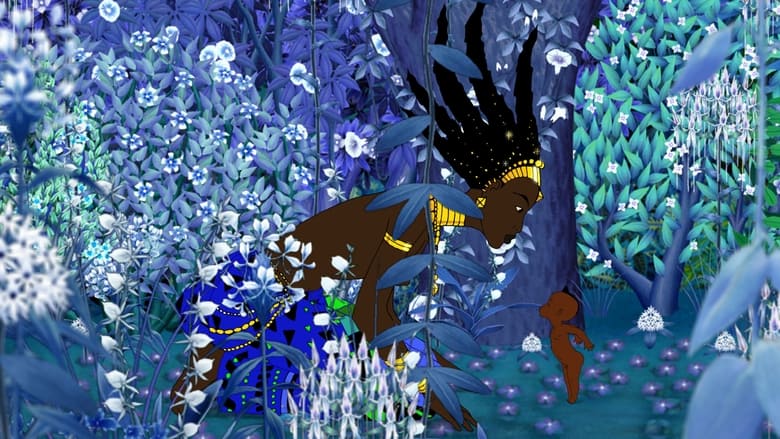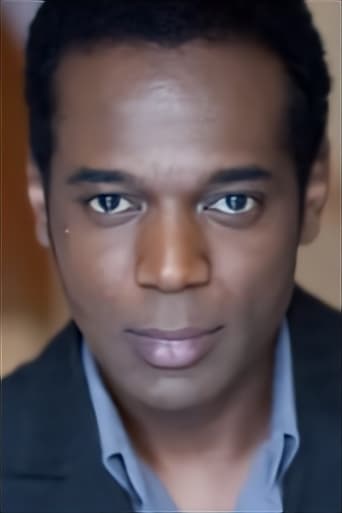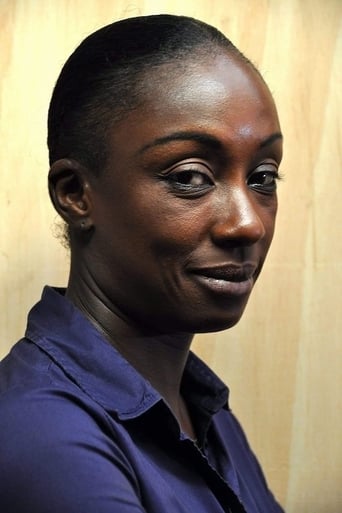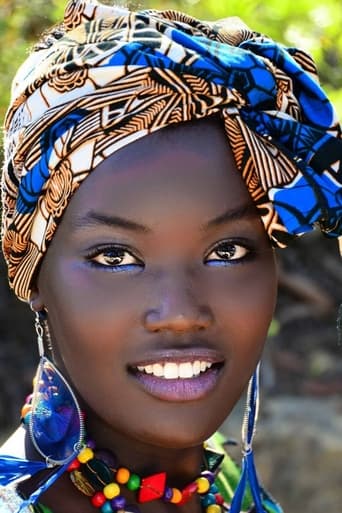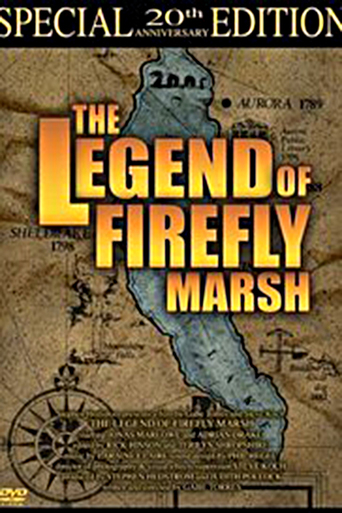Kirikou and the Sorceress (1998)
Drawn from elements of West African folk tales, it depicts how a newborn boy, Kirikou, saves his village from the evil witch Karaba.
Watch Trailer
Cast


Similar titles
Reviews
Sorry, this movie sucks
Excellent but underrated film
The joyful confection is coated in a sparkly gloss, bright enough to gleam from the darkest, most cynical corners.
what a terribly boring film. I'm sorry but this is absolutely not deserving of best picture and will be forgotten quickly. Entertaining and engaging cinema? No. Nothing performances with flat faces and mistaking silence for subtlety.
I watched this a lot when I was younger, like 2-4. It both entertained me and scared me. I'm not sure wether or not I'd recommend this. Its a good animation and story, but its also a bit odd. Also, I only watched it in the French translation. I don't speak French.
It's no surprise that this animated adventure is mostly culled from old West African legends, as it plays like a straightforward, unflinching fairy tale. Completely absurd notions, like the infant protagonist emerging at a dead sprint from his mother's womb, are dismissed offhand in the same vein as Little Red Riding Hood's incognito wolf. That fundamental acceptance frees up the storyline to be as wildly adventurous as it likes, and coats the whole endeavor in a veil of whimsy and charm. The result is a yarn on par with Miyazaki and Disney, although the uneven animation quality ultimately keeps it from reaching those lofty heights. At times it's as beautiful and fluid as the best western animation, with a style and panache all its own, but that dedication rarely lasts long. Bright, innocent and optimistic, it's solid fare for open-minded families who don't mind navigating a sea of topless native tribeswomen.
Kirikou and the Sorceress is a delightful story of an unlikely hero whose confidence and quick wit enables him to overcome the evil in his village. Although quite small, Kirikou comes into the world with a sense of optimism that can only come from his pure innocence. He begins asking his mother questions then makes decisions that he will help his village become a better place. He is able to convince everyone in the village that he is strong and clever all while enduring their taunts about how small he is. He also is noticed by the Karaba, the Sorceress, as a threat to her and orders her fetishes to watch him. Kirikou finds out from his mother that only his Grandfather knows why Karaba is "so mean and evil". Kirikou's journey to get to the mountain to find his Grandfather becomes a series of challenges that we hear him think through and endure. Along the way, Kirikou earns the trust and admiration of forest creatures that are able to overcome their own fears and help him. Once he finds his grandfather, he learns the source of Karaba's evil and that his own strength is within him and he has carried it all along. My favorite quote was from Grandfather, he told Kirikou that "you will always find people that want to harm you no matter how good you are to them, as water will drown you and fire will burn you".This type of story has been told hundreds of time, in many cultures, over many generations. In my generation, this story of overcoming evil by finding the strength within was told through The Wizard of Oz and a variety of Walt Disney feature films. Unlike all of those, Kirikou and the Sorceress takes on a more traditional folktale approach to telling the story. The story told through the eyes of a child, retains its innocence by using simple illustrations and the music serves to enhance the narration instead of foretelling the story as it moves along. The artistic interpretation of what is good and what is evil makes the entire movie flow and would be very easy for a child to understand. With wisdom beyond his years and the ability to forgive, Kirikou is more of a man than all others in the village. Those two were both misunderstood and found a mutual respect and understanding that no other would be able to provide them. Although I initially found the ending to be odd, as I thought about it, it was perfectly fitting.As with any movie, it is important for parents to review it first before sharing with young children. The story is beautiful and perfectly suitable for kids; however, cultural differences may cause some discomfort with the nudity. I found it tasteful and an opportunity for an open family discussion.
In this film, "Kirikou and the Sorceress", the director is not only focusing on the revival and retelling of a famous African hero by the name of Sundiata, but he, like most African storytellers, announces to his audience the true nature and theme of the film. So what is the meaning to the film? The director believes that with modernity comes sacrifices and loss of tradition, which in turn leads to not only detrimental change but culturally damaging affects. Whether through subtilties of music and color or boldness of characterization and storyline, the director uses the story of Kirikou as a background for the viewer to be entertained and captivated while simultaneously able to relate and understand the struggles of such once seemingly inevitable metamorphoses.The movie begins with a small child crawling from his mother's womb asserting his independence while containing the wisdom far superior to that of the village elder and the courage of more than ten warriors. This boy is Kirikou, he is the living embodiment of all that is African bravery and intelligence. Kirikou is a relatable and lovable little boy, he is the force against evil but his small stature condemns him to the underdog role. Every American roots for the underdog, but in Kirikou's case, he is a confident, courageous and fast hero; he is the life of African hope against evil. Kirikou is tradition, he is the purity and innocence of African tradition, therefore, the director uses this main heroic figure as the personification of tradition itself, which rises to any challenge and ultimately prevails against evil.In contrast, the director's motivation for creating the sorceress, Karaba, as a man-eating, "mean and evil" presence is because she is the representation of the evil of modernity. She possesses evil fetishes, which are her lookouts and minions, but each of these evil followers is mechanically operated and functions only as a robot. These mechanized beings are portrayed as evil, therefore there is no doubt that the director believes that modernity is corrupt and in a sense, evil. Karaba herself is also the personification of evil in modern society and machinery because she is a soul-less entity who possesses not even one friend. Just her presence turns trees, shrubs and flowers into dead and dying weeds. With such bold interpretations and opinions, the director's characterization clearly states his view of modernity and how its presence kills all of Africa's cultural traditions as surely as Karaba kills all living plants and beings.Although the director does use obvious portrayals of evil modernity and the goodness of tradition, he also hints at the main theme through subtle musical inflections. While the camera pans in on Kirikou's village the music is soft, almost unnoticeable, calming and soothing. The beats are as beautiful as the pink leaved trees and as elating as the infectious hugging chipmunks in the garden beyond the sorceress' hut. The melodies are uplifting and simply happy while the kids are swimming in the lake and the women and children sing in unison while praising Kirikou. But just beyond the village there is a different sound to be heard. The music turns solemn and black as the sky blends to grays and dark hues. All melodies are lost and ominous feelings overcome the body as the scene focuses on Karaba's perimeter of darkness. With musical changes from happiness to fright, the theme of evil and purity can be witnessed and all the viewer has to do is have a watchful ear.The colors are also an indicator of modernity's evil ways and tradition's healing power. As mentioned briefly before, the colors change as often as the music, therefore indicating the transformation from the dark, gloomy and controlled reign of Karaba to the warm, rich colors of freedom as expressed in the village landscapes and natural forests. Colors seem to be just a significant in the interpretation of the story of Kirikou as the characterization that the director relies on as the literal and easier form of indicators of good and evil.The director does not stop there, however. Although, the director believes that evil describes modernity and that traditions is inherently good, there is another piece to the main theme puzzle. The main question of the movie revolves around why Karaba is so mean and evil, and as the ending reveals, Karaba is mean and evil because she has a thorn embedded in her spine supplying her with evilness and wrong doing. But as Kirikou bites the deeply embedded thorn with his teeth, and removes the painful object, Karaba is cured of her evil and is ultimately saved. By adding the salvation ending, the director believes that there is hope for tradition to thrive and that modernity is not an inevitable evil, but an evil that is deeply good but on the surface, contains an evil face.The story of Kirikou and the evil sorceress is a tale of overcoming adversity and extending hope to those who seem to be as drained of hope as the spring of water, but the story is also more personal than that. With evidence such as characterization, musical and color differences as well as ending plot, the main theme of Kirikou is to hail the significance of tradition and to preserve culture while undergoing moderate changes without dramatic and modern assimilation.

